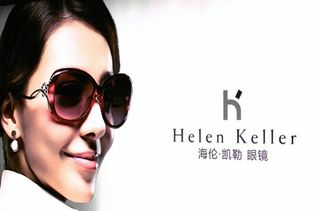Brands with Strange Foreign Names
 Chinese companies are capitalizing on the image of international sophistication by imitating American names, with mixed results. A New York Times article quotes a 20-year-old Chinese student: "Buy Chinese brands? Never. Foreign stuff is so much better."
Chinese companies are capitalizing on the image of international sophistication by imitating American names, with mixed results. A New York Times article quotes a 20-year-old Chinese student: "Buy Chinese brands? Never. Foreign stuff is so much better."
But the names are strange: Chrisden Deny, Prich, and Hotwind would make most Americans smile. According to a consultant in Shanghai, brand names, such as Adidios are Fuma are intentionally confusing.
Other names are just insulting. In a statement on its website, Colgate explains the history of Darlie toothpaste, a brand originally called Darkie and featuring an image of a minstrel in blackface:
"Almost 20 years ago, Colgate initiated action by Hawley & Hazel to eliminate the derogatory English name and packaging. The English brand name became "Darlie" and a stylized man in a top hat replaced the previous racial stereotype. These changes were implemented in 1990, with costs borne by Colgate. The Chinese language name, 'Hei ren,' was not changed. Hawley & Hazel's research shows that Chinese consumers perceive the 'Hei ren' toothpaste brand to be trustworthy, international and modern.
"Colgate is committed to demonstrating respect to all people; as a result of our investment in Hawley & Hazel, the totally unacceptable English language brand name was removed from the marketplace. We understand that there are different perspectives on the Chinese language brand, and we continue to consider these perspectives in our discussions with Hawley & Hazel."
I'm not sure how well Helen Keller glasses would sell in the United States.
Discussion Starters:
- Should Chinese and other country's brands make more of an effort to discover the cultural meaning of their names? Consider business, practical, and ethical implications.
- For the article, The New York Times asked Christian Dior for comment, but Dior didn't provide one. Should the company have made a statement and, if so, what would they say?
